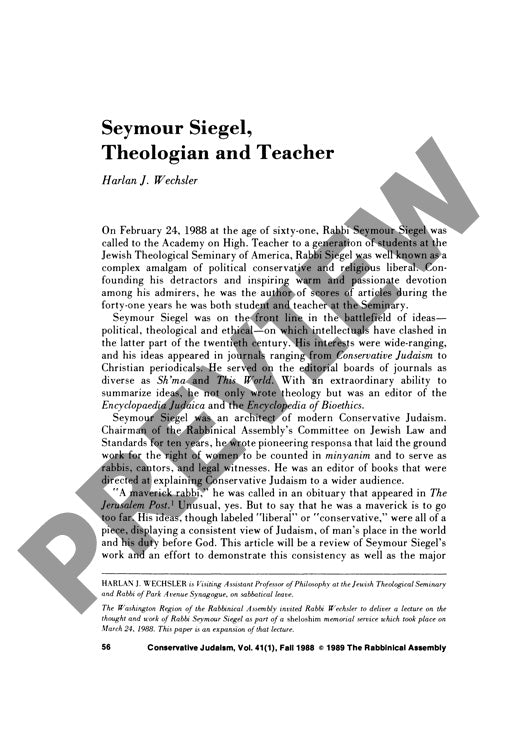Seymour Siegel Theologian and Teacher
Couldn't load pickup availability
Rabbi Seymour Siegel (1927-1988) forged a distinctive theological path that reconciled seemingly incompatible positions as both religious liberal and political conservative, establishing himself as a pivotal architect of modern Conservative Judaism. As Ralph Simon Professor of Theology and Ethics at the Jewish Theological Seminary of America, Siegel developed a coherent framework grounded in Solomon Schechter's nuanced understanding of human nature - one that acknowledged the tension between good and evil inclinations while rejecting extremes of both utopian optimism and total depravity. Through analysis of his published works, responsa, and teaching materials, particularly his writings on Jewish law and bioethics, five key principles emerge as the foundation of his Conservative Jewish theology: covenantal theology, anthropological realism, historical process, collective Jewish authority, and gradual social change. During his influential decade as Chairman of the Rabbinical Assembly's Committee on Jewish Law and Standards, Siegel revolutionized Conservative Judaism by establishing ethics as the primary criterion for halakhic development, arguing that aggadah should guide halakhah rather than the reverse. This innovative framework enabled his groundbreaking responsa supporting women's full religious participation and his pioneering work translating Jewish ethical principles into universal bioethical discourse. The research reveals that Siegel's theological architecture provided Conservative Judaism with both preservative legitimacy and adaptive capacity, ultimately extending his influence beyond denominational boundaries into interfaith dialogue and secular bioethical discussions.

More Information
-
Physical Description
-
Publication Information
Published 1988
ISBN
-
Publication Credits

